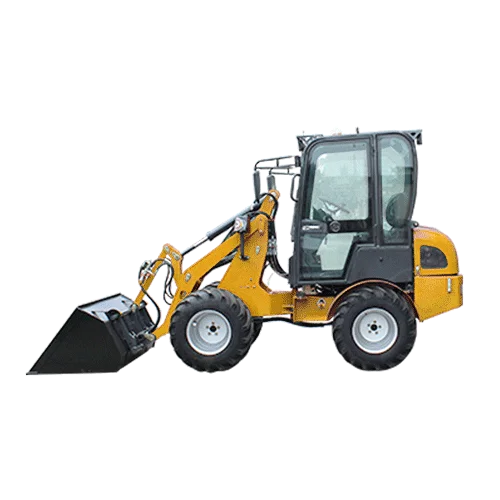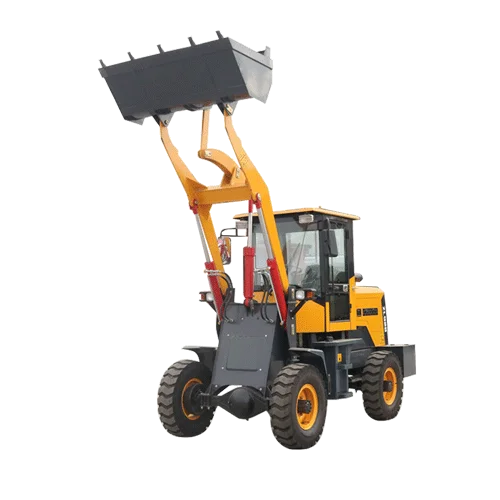Introduction

In the intricate web of transportation logistics, truck loaders stand as indispensable pillars. They form the backbone of freight movement, ensuring that goods are loaded efficiently, securely, and timely onto trucks for delivery to their destinations. In this blog post, we delve into the crucial role played by truck loaders in the transportation industry, highlighting their responsibilities, challenges, and significance.
Responsibilities of Truck Loaders
Truck loaders shoulder a myriad of responsibilities crucial for the smooth functioning of transportation operations. From organizing loading schedules to inspecting cargo for compliance with safety regulations, their tasks are multifaceted. Here’s an overview of their primary responsibilities:
- Loading and Unloading: Truck loader are responsible for efficiently loading goods onto trucks while ensuring even weight distribution and adherence to loading protocols. Additionally, they oversee the unloading process upon reaching the destination, ensuring accuracy and safety.
- Cargo Inspection: Prior to loading, truck loader meticulously inspect cargo for any damages, discrepancies, or irregularities. This inspection process is vital for maintaining the integrity of the goods during transit and minimizing the risk of damage or loss.
- Safety Compliance: Truck loader are well-versed in safety regulations governing the transportation of goods. They ensure that all loading procedures adhere to safety standards and that hazardous materials are handled and loaded in accordance with legal requirements.
- Inventory Management: Efficient inventory management is another key responsibility of truck loader. They keep track of incoming and outgoing shipments, maintain accurate records of loaded goods, and coordinate with warehouse personnel to ensure inventory accuracy.
Challenges Faced by Truck Loaders
Despite their crucial role, truck loaders encounter various challenges in their day-to-day operations. These challenges can range from logistical hurdles to physical demands. Here are some common challenges faced by truck loaders:
- Time Constraints: In a fast-paced transportation environment, truck loader often face tight deadlines for loading and unloading shipments. Meeting these deadlines while ensuring accuracy and safety can be challenging.
- Physical Demands: The job of a truck loader is physically demanding, involving heavy lifting, bending, and prolonged periods of standing. This can lead to fatigue and increased risk of injuries if proper safety measures are not followed.
- Weather Conditions: Truck loader must work in all types of weather conditions, from scorching heat to freezing cold and rain. Adverse weather can pose significant challenges to the loading process and affect overall efficiency.
- Space Constraints: Limited space at loading docks or warehouse facilities can complicate the loading process, requiring careful coordination and organization to maximize space utilization.
Significance of Truck Loaders in Transportation
The significance of truck loaders in the transportation industry cannot be overstated. They play a critical role in ensuring the timely and secure movement of goods from suppliers to consumers. Without efficient truck loader, the supply chain would falter, leading to delays, disruptions, and increased costs. Here are some key aspects highlighting their significance:
- Efficiency: Truck loaders streamline the loading process, minimizing idle time and maximizing truck capacity. Their efficient handling of cargo ensures swift turnaround times and optimized transportation routes.
- Reliability: Truck loader are the linchpin of reliability in transportation logistics. Their attention to detail and adherence to safety protocols instill confidence in shippers and receivers alike, ensuring smooth operations from start to finish.
- Cost Savings: By optimizing loading procedures and minimizing errors, truck loaders contribute to cost savings throughout the supply chain. Efficient loading leads to reduced fuel consumption, fewer accidents, and lower insurance premiums.
Below is a checklist outlining the essential steps for truck loaders to follow during the loading process:

| Step | Description |
|---|---|
| Inspect Cargo | Thoroughly inspect all goods for damages, discrepancies, or irregularities. |
| Check Documentation | Ensure all necessary paperwork and documentation are in order. |
| Prepare Loading Area | Clear loading area of obstacles and ensure proper lighting and ventilation. |
| Organize Cargo | Group similar items together and plan loading sequence for optimal space use. |
| Load Goods | Carefully load goods onto truck, distributing weight evenly and securely. |
| Secure Cargo | Use appropriate securing methods such as straps, pallets, or dunnage. |
| Verify Inventory | Double-check loaded items against inventory list to ensure accuracy. |
| Seal Trailer | Seal trailer doors and record seal numbers for security purposes. |
| Communicate | Inform relevant personnel once loading is complete and ready for departure. |
| Clean Up | Remove any debris or packaging materials from loading area. |
FAQ
Q: What qualifications are required to become a truck loader?
A: While specific qualifications may vary by employer, most truck loader positions require a high school diploma or equivalent. Additionally, candidates should possess physical stamina, attention to detail, and the ability to work in a fast-paced environment.
Q: What safety measures should truck loaders follow to prevent injuries?
A: Truck loaders should always use proper lifting techniques, wear appropriate personal protective equipment (PPE), and be aware of their surroundings to prevent accidents. Regular safety training and adherence to safety protocols are essential.
Conclusion
In conclusion, truck loaders play an essential role in the transportation industry, ensuring the efficient, secure, and timely movement of goods. Their responsibilities encompass various aspects of loading operations, from cargo inspection to safety compliance. Despite facing challenges such as time constraints and physical demands, truck loaders remain indispensable contributors to the smooth functioning of the supply chain. Moving forward, recognizing and valuing their vital role will be key to sustaining efficient transportation logistics.

